★★★½
“…and, yet, so far.”
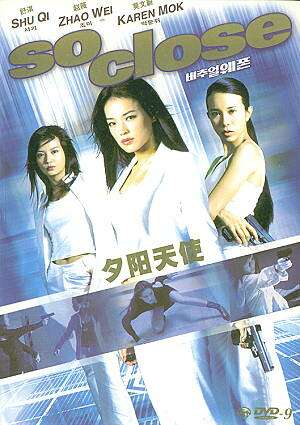 For action alone, this is certainly worth a look, with some stunning and imaginative set-pieces. But the bits between are so badly-handled, I actually dozed off – twice – which is barely permissible in a drama, never mind an action movie. It’s a tale of two sisters, who form a team of assassins: big sis Lynn (Shu Qi, from The Transporter) does the deed, little sis Sue (Zhao) is hi-tech backup, using gadgetry handed down from their father. But the police, led by eccentric forensics expert Hung (Mok), are on the trail, so a client opts to tidy the loose ends by targeting all three women, forcing a partnership between cop and killers.
For action alone, this is certainly worth a look, with some stunning and imaginative set-pieces. But the bits between are so badly-handled, I actually dozed off – twice – which is barely permissible in a drama, never mind an action movie. It’s a tale of two sisters, who form a team of assassins: big sis Lynn (Shu Qi, from The Transporter) does the deed, little sis Sue (Zhao) is hi-tech backup, using gadgetry handed down from their father. But the police, led by eccentric forensics expert Hung (Mok), are on the trail, so a client opts to tidy the loose ends by targeting all three women, forcing a partnership between cop and killers.
Unfortunately, as well as a bit of lesbian subtext between Hung and Sue, there’s a very poorly executed romance between Lynn and an old flame. Viewers should also know a cover of Carpenters’ ‘classic’ Close to You appears – repeatedly (once is amusing irony, twice is pushing it, and more than that…). These aspects suck the life from the film like a leech, though the fights remain sturdy enough, despite the presence of too much CGI glass [most obviously when Yuen repeats a stunt from Yes, Madam, which Michelle Yeoh did with real glass!] Overall, an ideal movie to watch on fast-forward, or with some other distraction to hand.
Dir: Corey Yuen
Star: Shu Qi, Zhao Wei, Karen Mok, Song Seoung-Heon





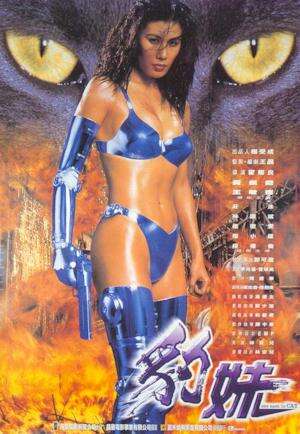 Clarence Ford seems to be after a PG-13 rated version of his hit, Naked Killer, reining in the sex while keeping the action. That it doesn’t succeed is more due to staggering ineptness in the superfluous attempts to give it emotional depth.
Clarence Ford seems to be after a PG-13 rated version of his hit, Naked Killer, reining in the sex while keeping the action. That it doesn’t succeed is more due to staggering ineptness in the superfluous attempts to give it emotional depth. 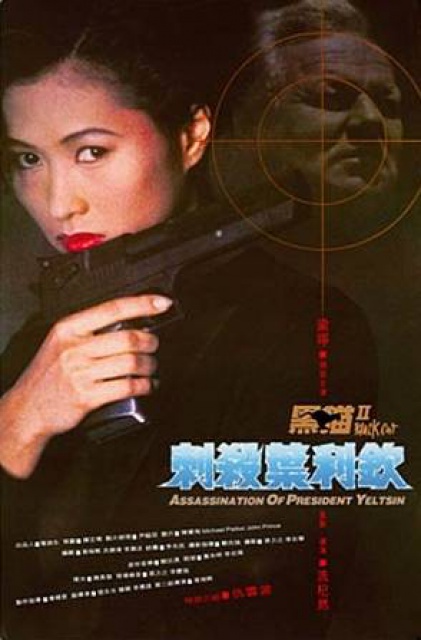
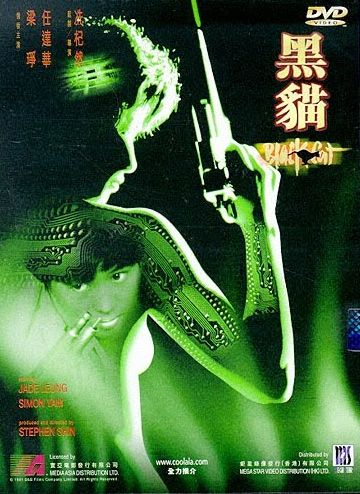
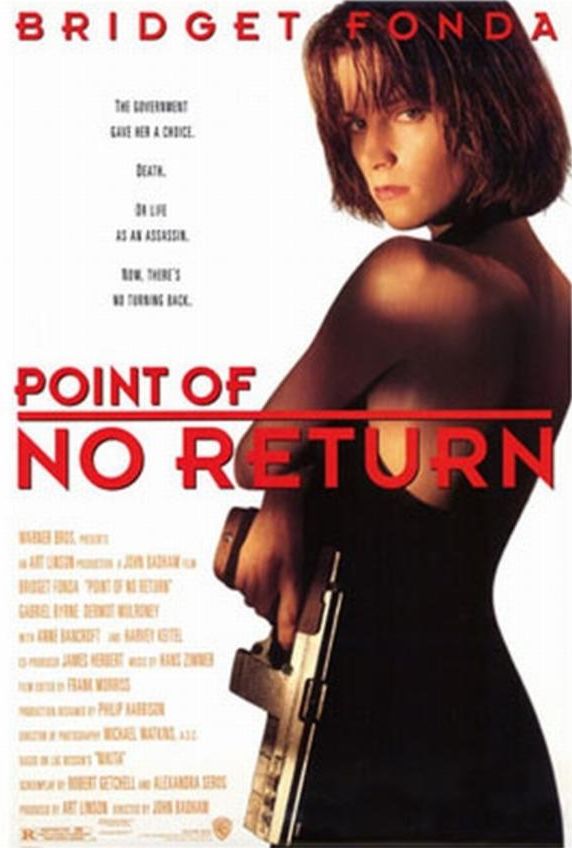
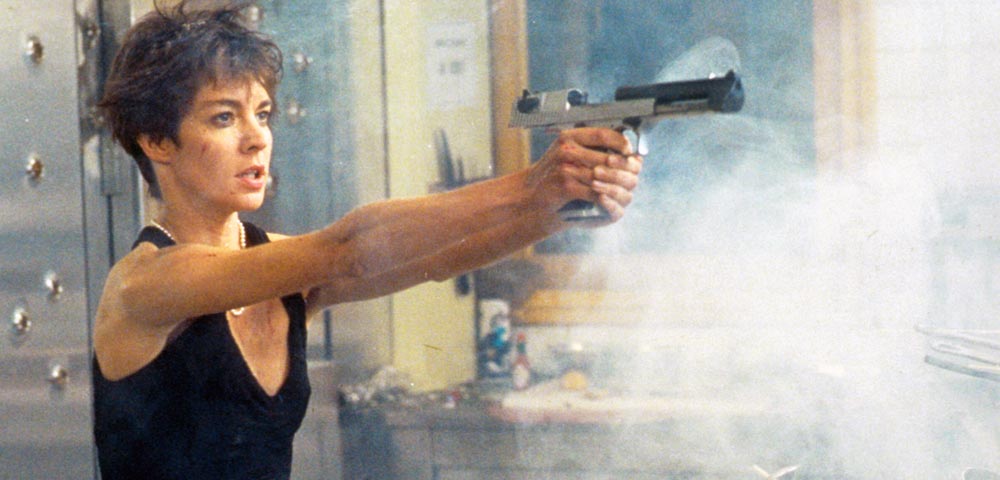
 Luc Besson’s original contains all the necessary elements which would become standard for the field. A criminal is “killed” by the government, only to be resurrected into a new life as an assassin for the authorities. Initially resistant, she eventually embraces her new life, but a romance reminds her of the world she left behind, and becomes a potentially lethal threat to her existence when it starts to interfere with her professional capabilities.
Luc Besson’s original contains all the necessary elements which would become standard for the field. A criminal is “killed” by the government, only to be resurrected into a new life as an assassin for the authorities. Initially resistant, she eventually embraces her new life, but a romance reminds her of the world she left behind, and becomes a potentially lethal threat to her existence when it starts to interfere with her professional capabilities.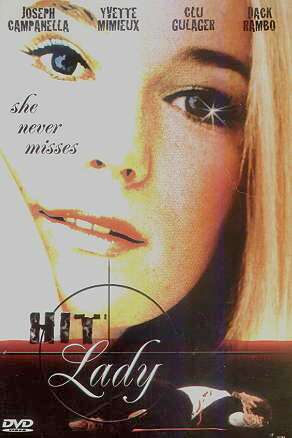 Things the movies teach us, #285: if you are a criminal, do not agree to do “one last job” before retiring, because it never works out that way. I guess assassin for hire Mimieux doesn’t go to the cinema enough, or she’d have known this, rather than letting herself get talked into that OLJ, in this case, killing a union leader. To make it look like an accident, she has to get close to him, only to find herself falling in love with her target – a common hazard of the job, going by how often this happens in films. From here, it’s all downhill, as her identity is compromised, and she has to flee.
Things the movies teach us, #285: if you are a criminal, do not agree to do “one last job” before retiring, because it never works out that way. I guess assassin for hire Mimieux doesn’t go to the cinema enough, or she’d have known this, rather than letting herself get talked into that OLJ, in this case, killing a union leader. To make it look like an accident, she has to get close to him, only to find herself falling in love with her target – a common hazard of the job, going by how often this happens in films. From here, it’s all downhill, as her identity is compromised, and she has to flee.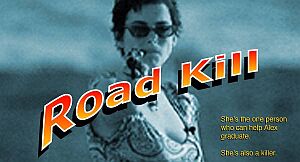 Advertised with the fetching slogan, “Guns don’t kill people – she does”, this is a film about a film, specifically the graduation documentary being made by Alex (Palladino), who has the good fortune to live opposite hitwoman, Blue (Rubin). She just happens to be going on her final job, and agrees to let him and sound-man Lars (Jayne) come along. On the way, however, things come out of the closet about Blue’s background, and Alex finds himself crossing the line between documentarian and instigator.
Advertised with the fetching slogan, “Guns don’t kill people – she does”, this is a film about a film, specifically the graduation documentary being made by Alex (Palladino), who has the good fortune to live opposite hitwoman, Blue (Rubin). She just happens to be going on her final job, and agrees to let him and sound-man Lars (Jayne) come along. On the way, however, things come out of the closet about Blue’s background, and Alex finds himself crossing the line between documentarian and instigator. Rubin, given the chance, does a good job, though it’s only in the final confrontational scene that we get to see what she is really capable of doing. Until then, the job of assassin seems little more interesting than that of a travelling salesman – she drives cross-country, pop-pop, and drives home again. It’s all rather too prosaic, making it hard to see why Alex (or, indeed, the viewer), would want to get so involved. It certainly isn’t the glamour or the excitement.
Rubin, given the chance, does a good job, though it’s only in the final confrontational scene that we get to see what she is really capable of doing. Until then, the job of assassin seems little more interesting than that of a travelling salesman – she drives cross-country, pop-pop, and drives home again. It’s all rather too prosaic, making it hard to see why Alex (or, indeed, the viewer), would want to get so involved. It certainly isn’t the glamour or the excitement. This is an odd little film; heroine Angel (Walden – by some reports now a ski-lift attendant) is an assassin, ordered to take out the leaders of a white slavery ring. After the first killing, she finds solace in the arms of a random guy, and you
This is an odd little film; heroine Angel (Walden – by some reports now a ski-lift attendant) is an assassin, ordered to take out the leaders of a white slavery ring. After the first killing, she finds solace in the arms of a random guy, and you 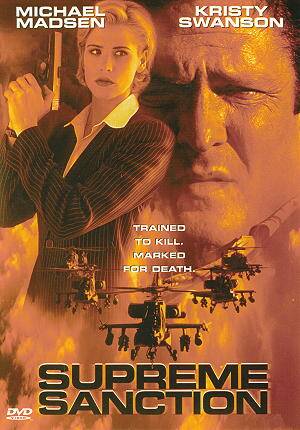 Director Terlesky starred in one of my favourite guilty pleasures, Deathstalker II, but this shows he still has much to learn about directing and, particularly, scripting. There just isn’t enough going on here to sustain attention, with too many scenes taking twice as long as necessary. Swanson plays Jenna, assassin for a government counter-terrorist agency which is now creating incidents in order to get increased funding. She switches sides and protects TV journalist Jordan McNamara (Dukes), whom she has been ordered to kill – her handler Dalton (Madsen) must now take her out.
Director Terlesky starred in one of my favourite guilty pleasures, Deathstalker II, but this shows he still has much to learn about directing and, particularly, scripting. There just isn’t enough going on here to sustain attention, with too many scenes taking twice as long as necessary. Swanson plays Jenna, assassin for a government counter-terrorist agency which is now creating incidents in order to get increased funding. She switches sides and protects TV journalist Jordan McNamara (Dukes), whom she has been ordered to kill – her handler Dalton (Madsen) must now take her out.